Introduction
A rapidly developing area called translational genomics seeks to close the knowledge gap between genomic research breakthroughs and therapeutic use. It involves translating genomic information into actionable knowledge to guide disease diagnosis, treatment, and prevention. By integrating genomic data with clinical information, translational genomics enables personalized medicine approaches, improves patient outcomes, and enhances our understanding of disease biology.
Understanding Translational Genomics
Translational genomics is a field that aims to translate genomic research findings into practical applications for clinical practice. It integrates genomic data with clinical information to improve disease diagnosis, treatment selection, and patient care. Key components of translational genomics include genomic sequencing and analysis, functional annotation and variant interpretation, biomarker discovery and validation, integration of genomic and clinical data, bioinformatics and data analysis, and clinical validation and implementation.
By leveraging genomic information, translational genomics enables personalized medicine approaches, targeted therapies, early disease detection, and improved patient outcomes. However, challenges such as data integration, clinical validation, and ethical considerations need to be addressed for the widespread adoption of translational genomics. With ongoing advancements, translational genomics holds great promise for transforming healthcare and driving precision medicine forward.
Components of Translational Genomics
Translational genomics involves multiple components that work together to bridge the gap between genomic research and clinical practice. These components include:
- Genomic Sequencing and Analysis: Genomic sequencing technologies, such as next-generation sequencing (NGS), play a crucial role in translational genomics. They allow researchers to obtain large-scale genomic data, including whole genome sequencing (WGS), whole exome sequencing (WES), and targeted gene panel sequencing. The genomic analysis involves processing and interpreting this data using bioinformatics tools and algorithms to identify genetic variants, mutations, and other genomic alterations.
- Functional Annotation and Variant Interpretation: Once genomic variants are identified, functional annotation is performed to understand their potential effects. This involves annotating the variants with information about their location within genes, the potential impact on protein structure and function, and known disease associations. Variant interpretation aims to determine the clinical significance of the identified variants and their relevance to the disease.
- Biomarker Discovery and Validation: Translational genomics focuses on discovering and validating genomic biomarkers that can be used for diagnostic, prognostic, and therapeutic purposes. Biomarkers can be genetic variants, gene expression patterns, epigenetic modifications, or other genomic features. Discovering biomarkers involves large-scale genomic studies, such as genome-wide association studies (GWAS), to identify associations between genetic variations and disease phenotypes. Validation studies are then conducted to confirm the clinical relevance and utility of the identified biomarkers.
- Integration of Genomic Data with Clinical Information: To make genomic data actionable in clinical practice, it is essential to integrate it with clinical information. This includes patient demographics, medical history, treatment responses, and other relevant clinical variables. Integrating genomic and clinical data allows for a comprehensive understanding of disease mechanisms, patient stratification, and the development of personalized treatment strategies.
- Bioinformatics and Data Analysis: Bioinformatics plays a critical role in translational genomics by providing tools and algorithms for data processing, analysis, and interpretation. These tools enable researchers to handle the vast amount of genomic data, identify relevant genetic variations, perform statistical analyses, and generate meaningful insights. Bioinformatics also involves the development of databases and resources that facilitate data sharing and collaboration in the field.
- Clinical Validation and Implementation: For translational genomics to have a meaningful impact on patient care, it is crucial to validate the clinical utility of genomic findings. This involves conducting rigorous clinical studies to establish the accuracy, sensitivity, specificity, and predictive value of genomic tests. Additionally, considerations related to regulatory approvals, reimbursement, and guidelines are essential for the successful implementation of genomic technologies in clinical practice.
These components of translational genomics work in synergy to bridge the gap between genomic research and clinical applications. They contribute to developing personalized medicine approaches, improved disease diagnosis and prognosis, targeted therapies, and enhanced patient care. Through ongoing technological advancements and collaborative efforts, translational genomics continues to shape the future of precision medicine.
Challenges in Translational Genomics
- Data Integration and Analysis: Translational genomics generates vast amounts of genomic data, and effectively integrating, analyzing, and interpreting this data remains a significant challenge. Developing robust bioinformatics tools and algorithms is essential for efficient data processing and extracting meaningful insights.
- Clinical Relevance and Utility: Translating genomic findings into clinically actionable information poses a challenge. Validating the clinical utility of genomic biomarkers and demonstrating their impact on patient outcomes requires rigorous studies and large-scale collaborations. Clinical validation studies must establish genomic tests’ accuracy, sensitivity, specificity, and predictive value.
- Ethical, Legal, and Social Implications (ELSI): Translational genomics raises various ethical, legal, and social implications, including privacy concerns, data security, consent for genomic testing, and equitable access to genomic technologies. Addressing these ELSI issues is crucial to ensuring the responsible and honest implementation of translational genomics in clinical practice.
Impact of Translational Genomics
- Personalized Medicine: Translational genomics facilitates the implementation of personalized medicine approaches. By considering individual genetic variations and biomarkers, healthcare providers can tailor treatment plans, optimize drug selection and dosage, and predict treatment response, improving patient outcomes.
- Early Disease Detection and Prevention: Genomic biomarkers identified through translational genomics can aid in early disease detection and prevention. Genetic screening and risk assessment can identify individuals at higher risk of developing certain diseases, enabling proactive interventions, lifestyle modifications, and targeted preventive measures.
- Targeted Therapies: Translational genomics has revolutionized drug development by enabling the identification of specific genetic targets for therapeutic interventions. Genomic information can guide the development of targeted therapies, such as gene therapies, immunotherapies, and precision cancer treatments, improving efficacy and reducing adverse effects.
- Disease Classification and Subtyping: Genomic profiling can improve disease classification and subtyping. It allows for identifying distinct molecular subtypes within a disease, aiding in more precise diagnosis, prognosis, and treatment selection.
Conclusion
Translational genomics bridges the gap between genomic research and clinical practice. By leveraging genomic data, biomarker discovery, and the integration of clinical information, translational genomics enables personalized medicine, early disease detection, targeted therapies, and improved patient outcomes. However, several challenges must be addressed for widespread translational genomics adoption, including data integration, clinical validation, and ethical considerations. With ongoing advancements in technology and collaborative efforts between researchers, clinicians, and policymakers, translational genomics has the potential to revolutionize healthcare and usher in a new era of precision medicine.



